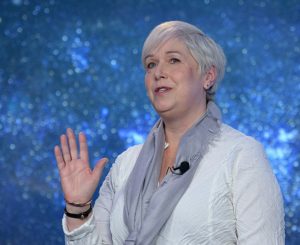
In the summer of 2022, a spacecraft will begin its 3.4-year journey towards Psyche, a huge metal-rich asteroid located between Mars and Jupiter. Most other asteroids – and there are around 1,500,000 of them in the asteroid belt – are rocky or icy bodies, but Psyche is thought to be the exposed nickel-iron core of an early planet. This metallic world, 173 miles at its widest, could offer planetary scientists a glimpse into the formation of Earth.
In her memoir, “A Portrait of The Scientist as A Young Woman,” Lindy Elkins-Tanton, the Principal Investigator of the NASA-funded Psyche mission tells the engaging story of her journey in science, from her tentative beginnings as an undergraduate student researcher in geology, to the present, where she is a planetary scientist at the Arizona State University’s School of Earth and Space Exploration. Within this narrative arc, she offers insights into the workings of academia, and offers guidelines to restructure the research enterprise to transform the pace of innovation and education in the United States.
She puts the spotlight on the prevalent “Hero Model” of science in academia. In most academic institutions, the leading scholar in any given area of research has ownership of a pyramid of resources dedicated to a given topic. “Heroes,” she avers, have an outsize influence on how knowledge should be created, how it should be funded, and how it should be adopted and regulated by society.
Read the rest of this review here. html. pdf.